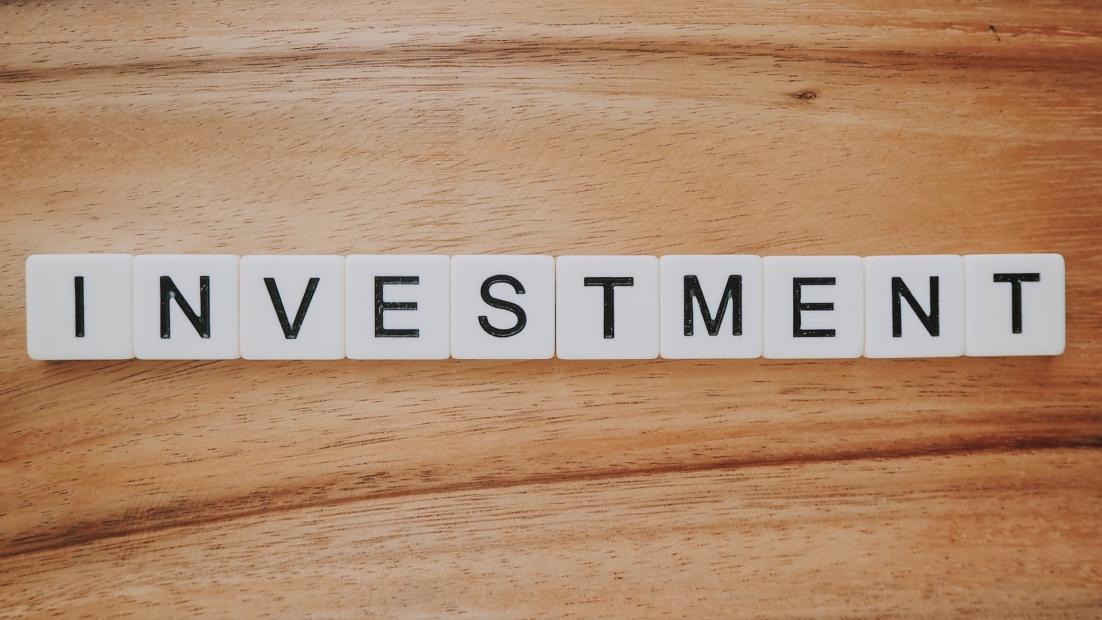Most people do not know much about investing money. However, they want to build up assets and need to provide for their own old age. Many customers are also afraid of losing money when they invest it.
In the following article, we therefore explain how you can structure your own wealth accumulation in such a way that you increase your chances of return while at the same time taking a manageable risk. Long-term investments help you to achieve your own financial investment goals in a structured way.
Contents
- 1 The most important information at a glance
- 2 What is meant by a long-term investment?
- 3 Different forms of long-term investments in detail
- 4 What aspects should you consider when choosing the right (long-term) investment?
- 4.1 What are your financial goals and what is your time horizon?
- 4.2 What portion should you keep as a “nest egg”?
- 4.3 What risks do you want to take?
- 4.4 How well do you know the different forms of investment?
- 4.5 Do you plan to invest money once or monthly?
- 4.6 How flexibly do you want to dispose of the money?
- 4.7 Do you want to benefit from regular distributions or is total return important to you?
- 5 Conclusion
- 6 FAQ
The most important information at a glance
- there are a variety of ways to invest money over a long period of time
- Long-term investments differ from short- and medium-term investments and trading in numerous respects.
- one’s own return expectations, investment goals and personal risk appetite are important aspects to consider in long-term investing
- with long-term and regular investments, the fluctuations and risks on the money and capital markets can be profitably exploited

What is meant by a long-term investment?
ou always make long-term investments when you invest your money for several years. Many investors want the highest possible return and at the same time want to take little or no risk. In addition, they want to be able to dispose of their money at any time. In this context, people talk about the so-called “magic triangle” of investing money.
“Magic” is the triangle because not all three wishes (availability, high return and little risk) can be realized at the same time. As an investor, therefore, you must always choose no more than two “corners” of the triangle. For example, a longer investment period goes hand in hand with a higher return opportunity. If you are prepared to take risks, you can also achieve good returns with a short term or if the money is available at any time.
Long-term investments should be distinguished from traditional “trading“. Trading is the trading (buying and selling) of shares or other securities. The buying and selling dates are usually only a few days apart. Short-term investments even have a term of only a few weeks or months.
Different forms of long-term investments in detail
Investors are often looking for a quick profit. So they want to invest their money and achieve high returns in the shortest possible time. However, this approach often results in losses because too much risk is taken. The stock markets, for example, are subject to short-term price fluctuations of up to 24.00%.
Therefore, it makes more sense to focus on long-term investments. You have the following investment options to invest your money for the long term and achieve high returns:
- Stocks or stock funds (investment savings)
- ETFs (investment savings)
- Real estate and real estate funds
- Bonds

Shares and share funds are among the classic forms of long-term investment. If you want to invest in stocks/stock funds, you should allow for an investment horizon of about 7 to 10 years. With a long time horizon, you can easily ride out a crash on the stock market or even use it for your own investment.
It is important that you never invest exclusively in one or a few individual stocks. Instead, diversify (spread) your money by buying 30 different stocks, for example. A stock fund is also good for diversification.
Advantages of investing in shares or share funds:
- You have high yield opportunities
- dividends are paid out at regular intervals (however, not all companies pay dividends)
- the money is available at any time
- shares are part of the special assets – even in case of insolvency of your bank the securities are protected
Disadvantages of investing in shares or share funds:
- the securities are subject to (short-term) high fluctuations
- a total loss is possible
- You need a securities account and pay fees for the purchase and sale of shares.
- the selection of suitable shares and funds requires expert knowledge
ETFs
In the recent past, more and more investors have decided to use ETFs (Exchange Traded Funds) for strategic asset accumulation. An ETF is defined as an exchange-traded index fund. An ETF therefore tracks an index (for example, the Dow Jones) 1:1. ETFs are also well suited for investing money over the long term and profiting from stock market developments. The advantages and disadvantages of ETFs at a glance:
Advantages ETFs:
- good return opportunities
- low fees
- the invested money is available at any time
- in case of insolvency of the ETF provider the money is not lost
Disadvantages ETFs:
- ETFs are subject to price fluctuations on the stock market
- you need a securities account to invest
- choosing the right ETF requires expertise
- You can only buy the whole index but you cannot choose the individual companies
Real estate and real estate funds
Buying or building your own property is also one of the long-term investments. If you do not want to buy your own house or condominium, you can invest in real estate funds instead. These generate an annual return. Real estate, on the other hand, can either be owner-occupied or rented out. Of course, real estate investments also have advantages and disadvantages:
Advantages of real estate as well as real estate funds as an investment:
- You benefit from monthly rental income
- alternatively, you live rent-free in old age
- You have tax advantages if the property is rented out
- real estate protects you from inflation, as it is a tangible asset
- through real estate funds you can invest in real estate even with little capital
Disadvantages of real estate and real estate funds as an investment:
- investing in real estate requires a high level of expertise
- sufficient equity capital is required
- Interest on borrowed capital and ancillary purchase costs must be taken into account and calculated
- Real estate funds can not be sold at will, but are subject to a holding period
Investing in bonds
Bonds are still an option as a long-term investment. When you invest in bonds, you make a loan to either a company or a government and receive a fixed rate of interest each year. At the end of the term, you get your invested money back. Bonds also have several advantages and disadvantages:
Advantages of bonds:
- regular distribution of interest
- Bonds are generally subject to lower fluctuations in value than shares
- If the bond is held until maturity and the issuer is not insolvent, no losses are made with bonds
- Bonds can be sold at any time
Disadvantages of bonds:
- Depending on the credit rating, corporate bonds can also be subject to a high level of risk
- If interest rates on the money and capital markets rise, the market value of a bond falls.
- Depending on the credit rating and interest rate level, bonds can have very low yields.
Reading tip: The Evolution of the Correlation Between Stocks and Bonds
Other forms of investment
There are other forms of investment that are suitable for long-term investment. For example, you can invest your money in precious metals (gold, silver), cryptocurrencies, derivatives, private equity and similar investments. All forms have advantages and disadvantages. Which investment form you ultimately choose should depend on your own financial goals, risk tolerance and investment horizon.
Keep in mind, however, that it always makes sense to spread your assets as broadly as possible across different asset classes. For example, buy some gold, invest some of the capital in stocks (individually or as an ETF/fund), and also acquire some real estate. This way you are well positioned for the long term and you have assets to fall back on.
Above all, shares are well suited for long-term asset accumulation.
Provided you have the opportunity to invest your money over several years or even decades, investment savings (ETFs and equity funds) are particularly suitable for long-term wealth accumulation. But why is that? Why do you benefit from long-term investing through investment savings?
The benefits come from three main aspects:
- You benefit from the compound interest effect
- short-term market fluctuations do not play a role
- The cost-average effect means that the time of entry is less relevant.
The example of the Dow Jones is an excellent illustration of the fact that you would have generated a return of approx. 9 percent per year with a long-term investment from 1980 to 2014.
What aspects should you consider when choosing the right (long-term) investment?
When choosing the right investment for you, several factors always play a role, which we will now discuss in more detail:

What are your financial goals and what is your time horizon?
The decision on which investment you choose should be based primarily on what financial goals you are pursuing with it. Do you want to save for the time after your active working life or do you want to buy a house in 10 years? Do you want to use the money to finance your child’s studies?
The next question is what time horizon you have available to achieve these financial goals. For example, if you plan to retire in 10 years, it is not advisable to finance a completely new property, because repayment usually takes about 25 to 30 years. If you have not yet set aside any capital for your own retirement, you will also have to take higher risks in order to reach your financial goal in 10 years.
What portion should you keep as a “nest egg”?
The second point concerns the diversification of your assets. It is advisable to always keep a “nest egg” in your account. This is about three months’ salary that you can easily dispose of in case of an emergency. Some people feel more comfortable having a higher nest egg. Others do without it altogether, but this is not advisable, as it may force you to sell some of your investments when liquidity is needed.
What risks do you want to take?
As you already know, your chance of return increases as long as you are willing to take a higher risk. Nevertheless, everyone has an individual risk propensity. So consider whether you could live with it if the invested capital falls in value over several months or even years, as can happen in the stock market. Are you financially and also psychologically able to endure such a phase?
How well do you know the different forms of investment?
Do you have knowledge in investing in the stock market? If you answer “no” to this question, it makes sense to seek advice in advance. If, on the other hand, you already know your way around, you can start buying shares, funds and ETFs in a structured way. It is always important to understand the type of investment you are putting your money into.
Do you plan to invest money once or monthly?
Choosing the right form of investment also depends on whether you plan to invest one time or monthly. For example, it’s a great idea to invest in an ETF on a monthly basis. On the other hand, if you want to make a one-time investment with a short time horizon and a low risk tolerance, you are more likely to choose a life insurance policy.
How flexibly do you want to dispose of the money?
You can invest your money on a fixed basis or look for investments that give you the flexibility to dispose of the money at any time. Physical gold, for example, is liquidable (you can sell the coins), but you have to go to a dealer and fees apply.
Do you want to benefit from regular distributions or is total return important to you?
For many people, it is important that they receive regular distributions, for example in the form of interest or dividends. These investors then usually opt for rental property, dividend stocks or bonds. However, if total return is important to you, then choose stocks or ETFs that do not pay dividends. This may also have tax advantages.
Reading-Tip: Investment Strategy in Focus: The Power of Income Strategy
Conclusion
At first glance, investing is a complex topic. Especially private provision (3rd pillar principle) is important for every investor.
- Through long-term investments and a good diversification of your assets, you minimize the risks and increase your chances of return.
- Before making an investment decision, consider what goals you are pursuing and also see to what degree you are willing to take risks.
- Then divide your money among different asset classes and let it work for you over the long term.
- You can also read our articles on the vested benefits principle and on vested benefits accounts.

FAQ
Where can you get advice?
In principle, it is possible to get advice at any bank. However, local advisors often work on a commission basis. This means that you profit if you buy a certain product. Therefore, get as many different opinions as possible from independent advisors and additionally inform yourself online.
Should every investor make long-term investments?
Long-term investing ensures that you have an above-average chance of return with a manageable amount of risk. As a result, you beat inflation and benefit from the compound interest effect. Only long-term asset accumulation ensures that you have enough money in old age. The 3rd pillar (your private pension plan) should therefore be designed entirely for long-term investments.
Which providers are there for long-term investments?
You can find numerous providers in the market where you can make long-term investments. These include:
- traditional banks
- Online banks as well as online brokers
- Wealth management companies and asset managers
- Robo-advisor
- Fund companies
- Insurance companies

